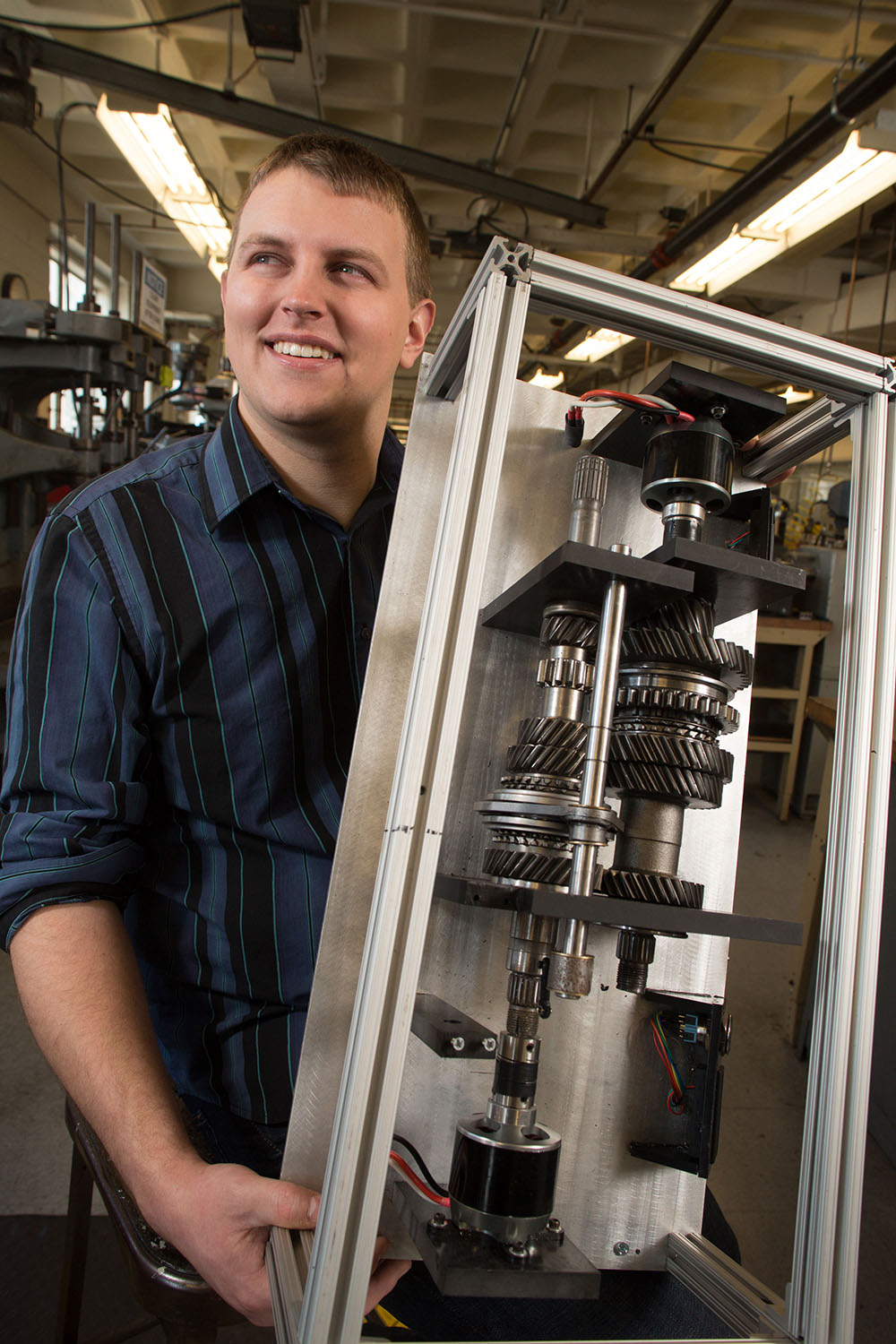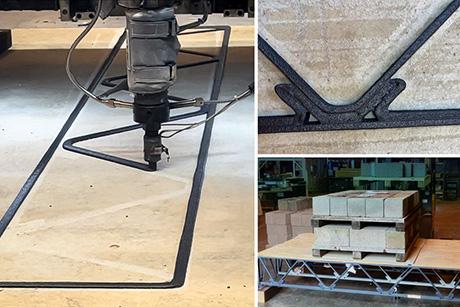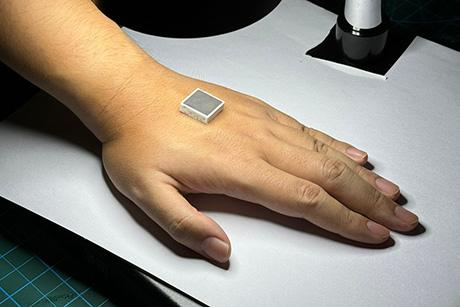MechE Students Win 2016 Lemelson-MIT Student Prize
Grad student wins for first clutchless hybrid car transmission; undergraduate team wins for first automated kitchen.
The Lemelson-MIT Program today announced the winners of the Lemelson-MIT Student Prize, a nationwide search for the most inventive college students. The Lemelson-MIT Program awarded $90,000 in prizes to collegiate inventors. Each winning team of undergraduates received $10,000, and each graduate student winner received $15,000. The winners of this year’s competition were selected from a diverse and highly-competitive applicant pool of students from 77 colleges and universities across the country.
“This year’s Lemelson-MIT Student Prize winners have outstanding portfolios of inventive work,” said Michael Cima, faculty director of the Lemelson-MIT Program. “Their passion for solving problems through invention is matched by their commitment to mentoring the next generation of inventors.”
The Lemelson-MIT Student Prize is a national collegiate invention prize program, supported by The Lemelson Foundation, serving as a catalyst for burgeoning young inventors.
“My husband Jerome always felt passionate about the potential of young collegiate inventors,” said Dorothy Lemelson, chair of The Lemelson Foundation. “The Lemelson-MIT Student Prize has evolved over the past 20 years to encourage and inspire students around the country to develop their ideas into viable products.”
2016 Lemelson-MIT Student Prize Winners
The “Cure it!” Lemelson-MIT Student Prize rewards students working on technology-based inventions that can improve health care. The winners are:
- Catalin Voss, Stanford University, $15,000 Lemelson-MIT “Cure it!” Graduate Winner. Voss developed the Autism Glass Project, an emotional learning aid for children with autism based on smart glasses like Google Glass. An individual with autism puts on the glasses and they automatically recognize emotions in other people’s faces using an artificial intelligence system. They then give intelligent social cues to the child right then and there via a heads-up display or audio.
- Jason Kang, Katherine Jin and Kevin Tyan, Columbia University, $10,000 Lemelson-MIT “Cure it!” Undergraduate Team Winner. Kang, studying in Columbia’s School of Engineering, along with Jin and Tyan, formed a startup, Kinnos Inc., to develop Highlight, an easy-to-use powdered additive that can be mixed into disinfectant solutions to make them colorized and highly visible. Their invention allows global health care workers to fully cover contaminated surfaces with disinfectant solutions, eliminating gaps in coverage and reducing evaporation rates. Highlight improves the process of infectious disease decontamination by directly addressing the problems of human error and empowering health care workers to protect themselves and the general public.
The “Drive it!” Lemelson-MIT Student Prize rewards students working on technology-based inventions that can improve transportation. The winner is:
- Dan Dorsch, Massachusetts Institute of Technology, $15,000 Lemelson-MIT “Drive it!” Graduate Winner. Dorsch invented the world’s first lightweight clutchless transmission for high-performance hybrid vehicles, which are designed to match the performance of existing supercars while achieving higher efficiency. Dorsch has partnered with a leading performance car company to refine his transmission technology for real-world applications. Dorsch believes it will be straightforward for other automotive manufacturers to adapt his technology for their vehicles, creating greater efficiency and performance in mass consumer models.
The “Eat it!” Lemelson-MIT Student Prize rewards students working on technology-based inventions that can improve food and agriculture. The winners are:
- Heather Hava, University of Colorado at Boulder, $15,000 Lemelson-MIT “Eat it!” Graduate Winner. Hava, a self-proclaimed “space gardener,” has focused her studies in bioastronautics, and specifically inventing ways to grow food in space and other extreme environments. She developed robots that can garden in space and patented a geodesic dome structure for on-Earth applications including use for disaster relief, sustainable housing and horticulture. Her invention SmartPot (SPOT), a smart growth chamber, can be teleoperated to help astronauts grow fruits and vegetables during space exploration missions. AgQ, also developed by Hava, is software that will process data from SPOT and provide feedback to the robot for proper plant care.
- Kale Rogers, Michael Farid, Braden Knight, and Luke Schlueter, Massachusetts Institute of Technology, $10,000 Lemelson-MIT “Eat it!” Undergraduate Team Winner. Mechanical engineering students Rogers, Farid, Knight and Schlueter created Spyce Kitchen, the world’s first completely automated restaurant. The invention incorporates a refrigerator, dishwasher, stovetop and chef all-in-one, allowing it to cook and serve meals using fresh ingredients without human involvement. The team believes Spyce Kitchen will revolutionize the fast food industry by operating with extremely low overhead while serving high quality, nutritious meals at fast food prices.
The “Use it!” Lemelson-MIT Student Prize rewards students working on technology-based inventions that can improve consumer devices. The winners are:
- Achuta Kadambi, Massachusetts Institute of Technology, $15,000 Lemelson-MIT “Use it!” Graduate Winner. Kadambi designs advanced cameras that acquire superhuman imagery — he believes that the camera should exceed rather than mimic the human eye. His inventions include ultrafast optics to film light in motion (“Nanophotography”) and an imaging system that relates nearly imperceptible rotations of light with 3-D models of the world (“Polarized 3-D”). At the intersection of electrical engineering, computer science, and optics, Kadambi’s work has applications that span medical imaging, robotic navigation, and virtual reality.
- Thomas Pryor and Navid Azodi, University of Washington, $10,000 Lemelson-MIT “Use it!” Undergraduate Winners. Pryor and Azodi created SignAloud, a pair of gloves that have the potential to revolutionize communication for people who cannot speak or hear. SignAloud gloves contain an array of sensors that measure hand position and movement, sending sensor data via Bluetooth for translation from American Sign Language to spoken words instantly. The gloves are lightweight, compact, and worn on the hands, but ergonomic enough to use as an everyday accessory, similar to contact lenses or a hearing aid.
Lemelson-MIT Student Prize applicants were evaluated by screening committees with expertise in the invention categories as well as a national judging panel of industry leaders — who also select the annual $500,000 Lemelson-MIT Prize winner. Screeners and judges assessed candidates on breadth and depth of inventiveness and creativity; potential for societal benefit and economic commercial success; community and environmental systems impact; and experience as a role model for youth.
Students interested in applying for the 2017 Lemelson-MIT Student Prize can find more information on the Lemelson-MIT website.
The Lemelson-MIT Program is also seeking partners with interest in sponsoring the competition, in addition to supporting the execution and scaling into new categories.



